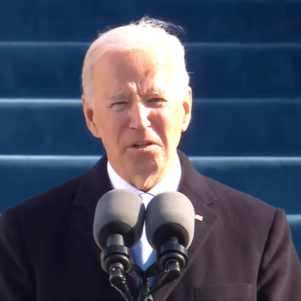An old-fashioned election in Maine, thankfully
By James P. Freeman | November 4, 2016, 7:00 EDT

“I felt like I’d been misplaced in the cosmos and I belonged in Maine.”
–Terry Goodkind, as quoted in Moving to Maine, 2007
Given the depressing and dispiriting presidential election, voters must feel misplaced in the political cosmos this November. But an election in central Maine for State Senate is an example that small-scale, old-fashioned elections, focused on issues, are occurring around the country. Thankfully.
To hear BJ McCollister, Maine Senate Democratic Campaign Committee Director, describe it, Senate District 20, encompassing Auburn, Mechanic Falls, Minot, New Gloucester, and Poland, is representative of Maine and America today: it is deeply divided.
He estimates that Republicans, Democrats and unenrolled voters each represent a third of the electorate in the district, which numbers nearly 38,000 residents. With elections occurring every two years in the Maine legislature, this district has flipped parties in each of the last five cycles, reflecting what McCollister calls “ticket splitting,” emblematic of Maine’s fierce independent streak.
Despite Mainer’s dislike of party affiliation, the seat today is occupied by Republican incumbent Eric Brakey, one of 20 Republicans who hold a majority in the Senate chamber, which totals 35 members. He is being challenged by a Democrat upstart, Kimberly Sampson.
McCollister believes that by election’s end, the majority party may control the Senate by just one seat and could swing Democrat. All 151 seats in Maine’s House of Representatives are also up for election, with Democrats currently holding slim majorities. A Democratic takeover of the legislature might just temper the irascible and incendiary Republican governor, Paul LePage. But don’t count on it.
LePage’s tenure was recently described in a Washington Post editorial as a “three-ring circus of unhinged racism and ravings.” His term ends in 2018 and there is speculation he may run for U.S. Senate that year. This is the same state, astonishingly, that elected the reserved and gentlemanly George Mitchell to two terms in the U.S. Senate. He also was chosen by Presidents Bill Clinton and Barack Obama to act as special envoy for peace settlements in Northern Ireland and the Middle East.
The duel between Brakey and Sampson, however, is representative of the great divisions between the major parties today, especially philosophically and financially. And there are interweaving themes — Brakey is supported by the firebrand LePage; and with the probable election of the first woman president, Hillary Clinton, Sampson’s passion is particularly compelling (she recently gave a short speech praising Clinton as Donald Trump was campaigning in nearby Lewiston). This race may tip the balance of power in the legislature.
In the Portland Press Herald’s recent expose on where the candidates stand on the issues, Brakey casts a classic Republican pose. He believes in “limited government, fiscal responsibility and personal freedom” and is opposed to an increase in the minimum wage and background checks for privately sold firearms in Maine. By contrast, in a year where public service experience seems to be a handicap, Sampson boasts that she is “not a career politician” and is for an increase in the minimum wage and background checks. She has received the endorsements of classically left-leaning unions: Maine Employers Association and the AFL-CIO.
Sampson is running under the framework of Maine’s Clean Election Act (MCEA). Passed twenty years ago as part of a citizen initiative, it established a voluntary program of full public financing of political campaigns for candidates running for Governor, State Senator, and State Representative. She estimates that approximately $25,000 in public funds will be spent on her campaign. Brakey has opted not to run under MCEA. McCollister says the non-partisan MCEA has actually increased voter participation and lowered the costs of elections in the state.
Today’s candidates running at the local level are a new breed of mercenary. There are no campaign airplanes, no spokespersons, no paid staffers and no appearances on the Sunday morning programs. There are no glaring klieg lights or glamorous kickoffs. A candidate forum in New Gloucester was attended by between 30 and 40 people and another forum, in Poland, was attended by just 20.
National campaigns run on sophisticated computer modelling and manipulation of social media as a means of identification of, and communication to, voters. Not to mention big personalities. Local campaigns, like this one, rely upon mailings, door knocking, calling voters and volunteers, who are largely anonymous. In a district roughly 191 square miles in size, Sampson estimates she has knocked on over 4,800 doors — spending five minutes talking and, depending on rural or suburban surroundings, spending ten minutes getting to the next door. She will have mailed out 12,000 brochures by Election Day and has not had a weekend free from campaigning in a year.
The job certainly is not lucrative either. According to ballotpedia.org, Maine’s part-time Senators are paid $14,074 per year for first regular session and $9,982 per year for second regular session, with a per diem allowance for meals and mileage.
As far as anyone can tell, no emails have been hacked and no disabled people have been disparaged during this campaign. It is, fundamentally, based upon ideas and issues, rare commodities in 2016. The passionate dedication of the candidates in District 20 to their respective causes is a noble exercise in the continuation of our experiment with representative democracy.
James P. Freeman is a New England-based writer and a former Cape Cod Times columnist.










